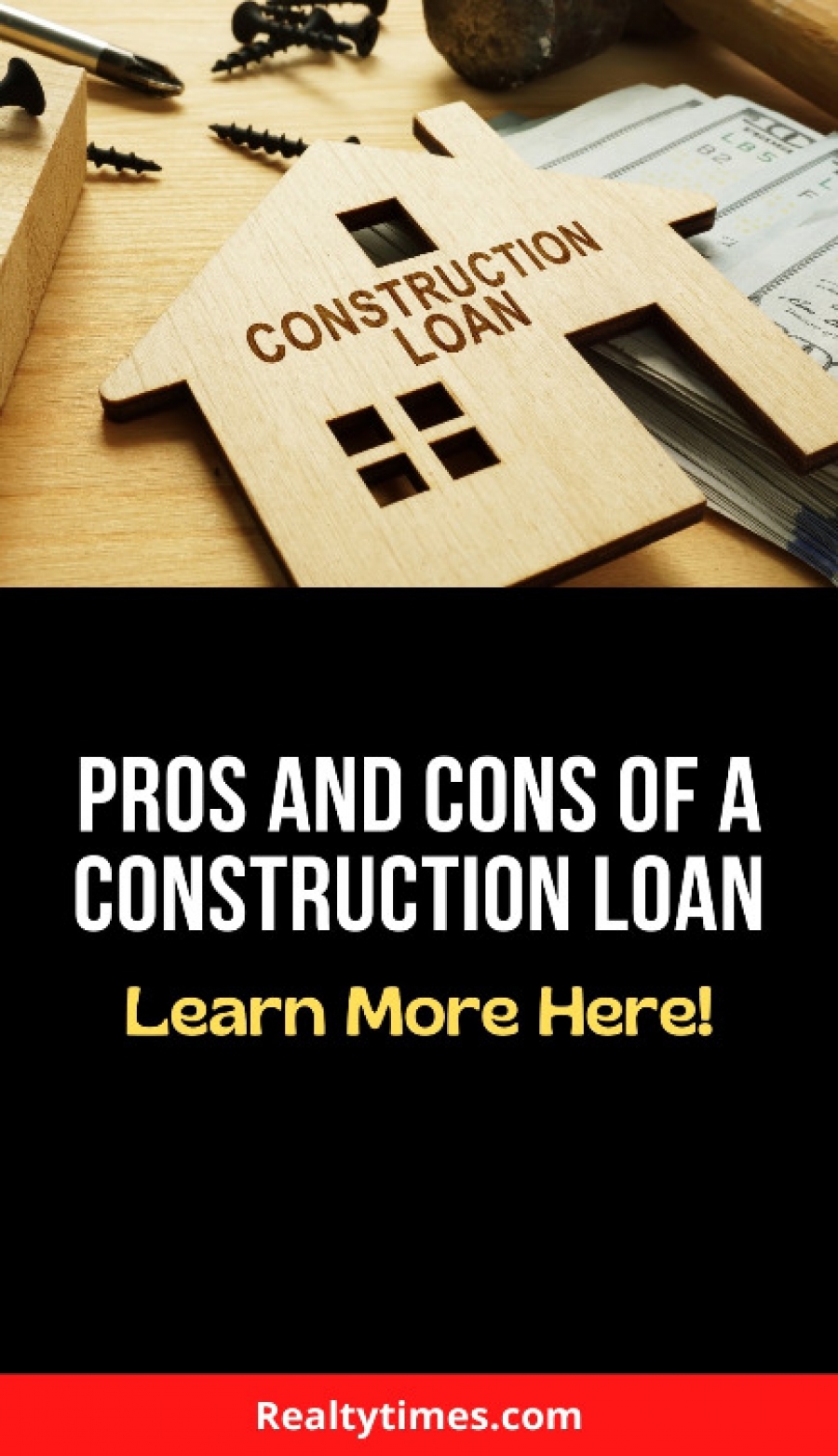If you have always dreamed of building a home, having the money to start building is a significant obstacle. However, lenders will loan the money needed to build a home if you meet the requirements.
A construction loan is an option when you need funds to buy building materials and pay for labor. But before you decide whether it is the right option, you need to know the pros and cons and how construction loans work.
What is a Construction Loan?
A short-term loan for construction provides money to cover the cost of building a new home or renovating your existing home. These loans are typically more expensive when compared to mortgages, with higher interest rates charged by lenders.
The loan works differently from traditional mortgages as well. The lender releases money in line with the progress of the construction. This should make funds available as they are required to complete the construction. The borrower can begin paying back the loan after 6 months.
Inspections must occur to ensure the contractor keeps to the schedule and the costs are as expected. Funds can then be released to the builder for that construction phase.
Closings are often longer than traditional resale homes due to the time necessary to construct the house.
The property still needs to be appraised based on the building plans and a set of specifications provided to the lender.
Like other homes, the appraiser will consider the house's square footage, location, bedrooms/baths, and other amenities in the construction.
Types of Construction Loans
There are three main construction loans:
Construction-to-Permanent
If you have firm plans, the lender will pay the builder as the work progresses. When the home is finished, the loan will convert into a mortgage at closing.
Construction to permanent loans is the most common type for building a single-family house.
Construction Only
With this type, the borrower has to pay the loan in full when the home is completed. When construction is finished, the borrower will need a mortgage to pay the loan.
Renovation Loan
You can use a construction loan to complete the work if you want a fixer-upper. The projected value of the home will define the maximum loan amount.
The Pros and Cons of Construction Loans
A construction loan isn’t your only option to fund your build, a home equity line of credit (HELOC) is another option. Let’s look at why choosing a construction loan might be for you.
Pros
Flexible Loans
The terms of a construction loan are usually more flexible than other types of loans. This can allow the terms of the loan to match your construction plans.
Interest Payments During Construction
You won’t have to start repaying the loan until the project is fully complete. Before then, you will only have to pay interest with lower monthly payments.
Converting to a Home Loan
The construction loan can transition into a mortgage when the project is finished. It might be possible to lock in a lower interest rate for the mortgage when taking out the construction loan.
Extra Oversight
When using this type of loan, the lender will want to ensure your plan is good. This additional scrutiny protects you and checks everything is as it should be.
When applying, you will need to provide a timeline and detailed plans. Your contractor must provide firm dates, a list of materials, methods of construction, and other details involved in the process. Having the work properly planned should mean things are more likely to run to schedule and on budget.
Build The Home You Want
With a construction loan, you can build what you want. If you have always had an idea of your dream home, a construction loan allows you to build your perfect house.
Cons
High Payments
Monthly payments with this loan can be higher. Since initially, you are only paying interest, it will mean the lender includes this time in their calculation, leading to higher monthly payments.
Higher Interest
Construction loans tend to have higher interest rates applied to them compared to conventional mortgages. These loans can be more risky to lenders, leading to higher rates. They also have higher credit score requirements than standard loans, and a 20% down payment is normally necessary.
Unexpected Costs
When building a house, instead of buying pre-built, the costs can be higher than you expect. If you need to change anything during construction, even if it only seems like a simple modification, the cost can escalate much more than expected.
Partial Payments
The lender usually won’t provide all the money and gradually releases the funds. Even though the money isn’t provided, you will pay interest during the construction.
Should You Choose a Construction Loan?
Building a home is costly, and a construction loan is designed to help you make the project a reality. It will pay your construction bills during the different phases of the project, but there could still be better loan options.
Ensure you are fully aware of the loans available before making your final choice.






